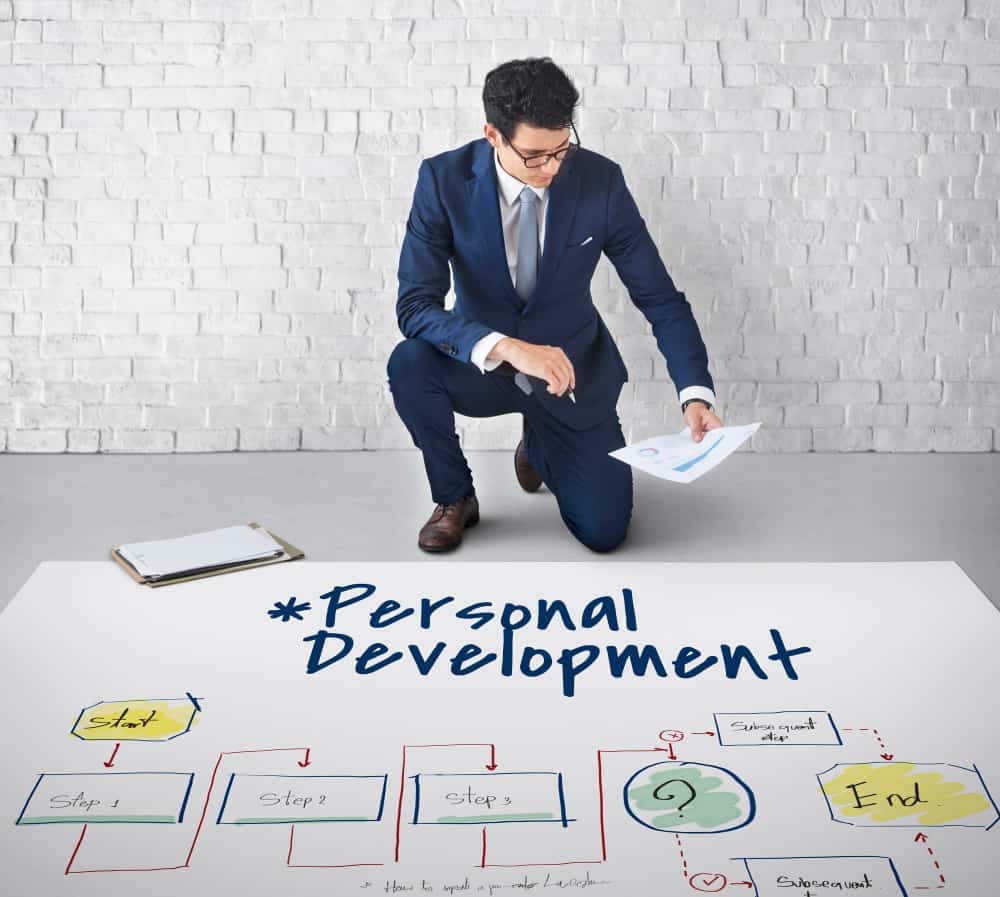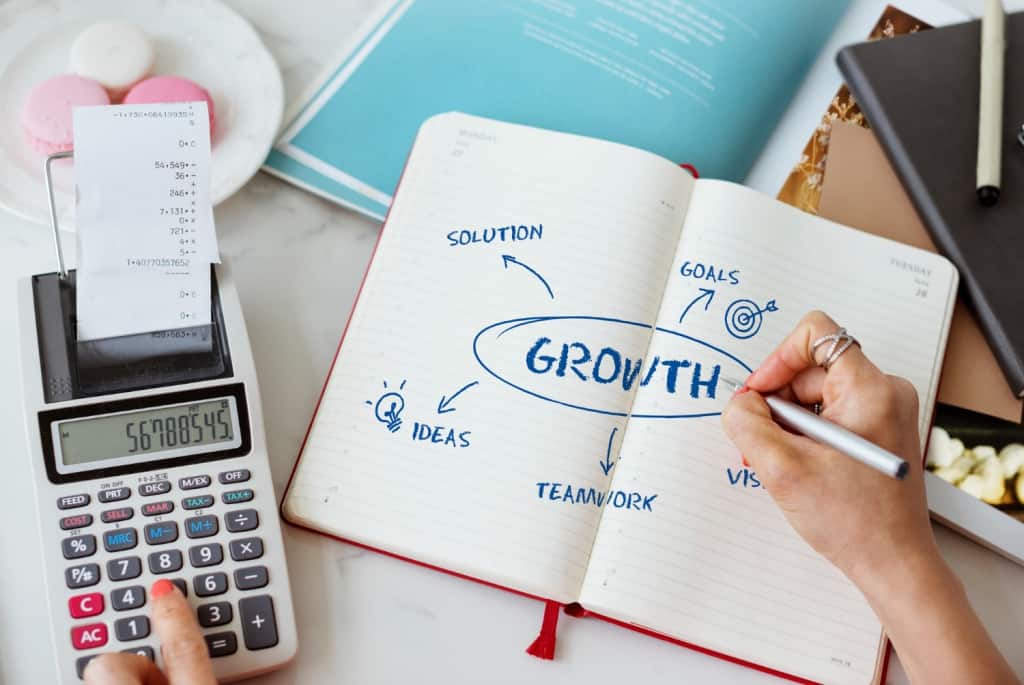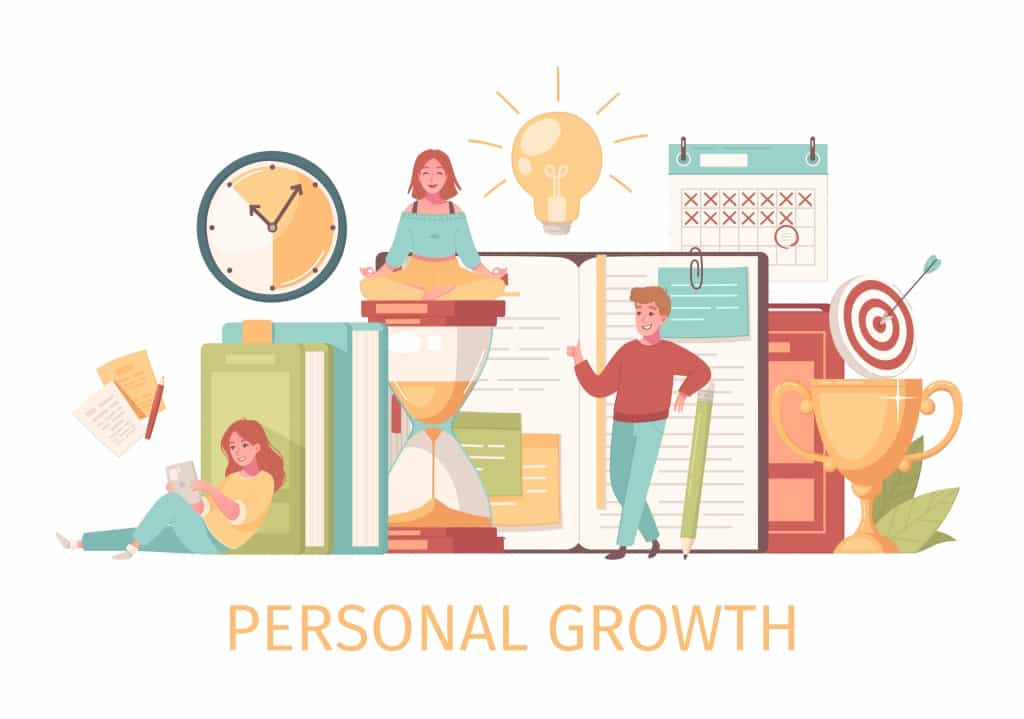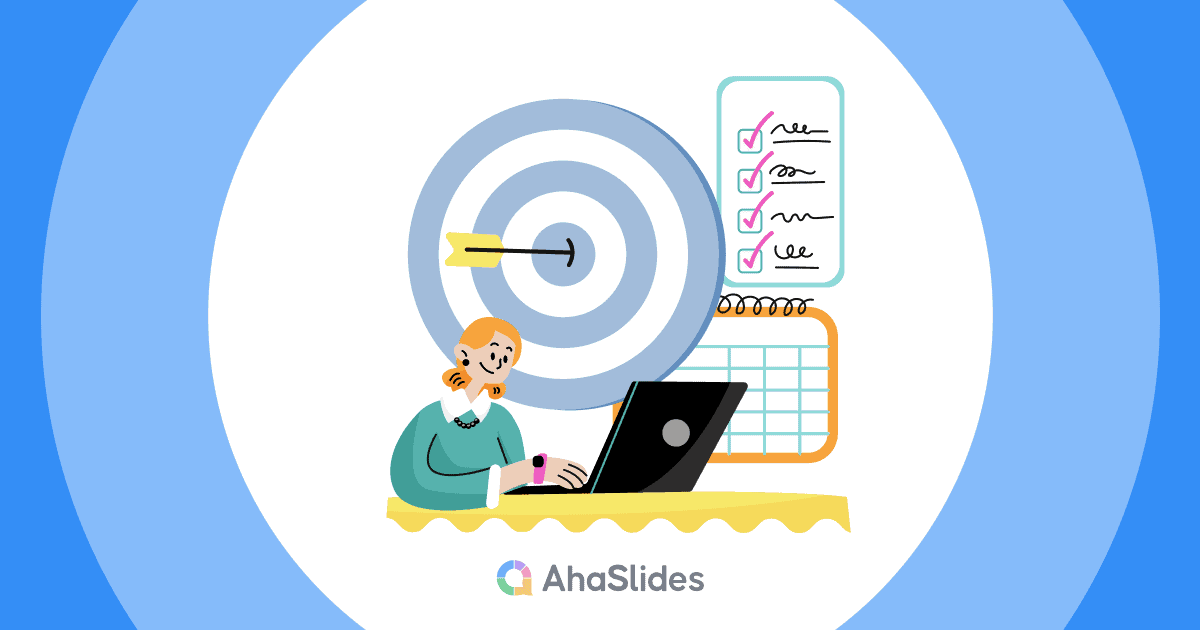In today's competitive workplace, it's more important than ever to be constantly learning and growing. That's where development goals for work come into play. Whether you're a recent graduate or a seasoned professional, setting and pursuing meaningful development goals can be a game-changer in your professional journey.
In this blog post, we'll walk you through a step-by-step process to set meaningful and specific examples of development goals for work.
Get ready to unlock your true potential!
Table of Contents
- Understand Development Goals For Work
- How To Set Your Personal Development Goals For Work
- Personal Development Goals For Work Examples
- Final Thoughts
- Frequently Asked Questions

Tips For Better Engagement

Looking for Ways to Train your Team?
Gather your team members by a fun quiz on AhaSlides. Sign up to take free quiz from AhaSlides template library!
🚀 Grab Free Quiz☁️
Understand Development Goals For Work
Development goals for work are specific objectives that individuals set to enhance their skills, knowledge, and capabilities in a professional setting. These goals are centered around personal growth and improvement, advancing one's career, increasing job satisfaction, and achieving long-term success.
Why Development Goals For Work Matter?
Personal development goals for work offer a wide range of benefits that contribute to both individual and organizational success. Here are some of the key advantages:
- Enhancing Skills and Knowledge: Development goals are instrumental in improving your skills and knowledge. By setting specific objectives, you can focus your efforts on areas where improvement is needed. By keeping tabs on your progress, you can easily gauge how much you have accomplished.
- Career Advancement: Progressing in your career often requires showcasing your abilities. Development goals help you demonstrate your skills and knowledge to your employer, making you more eligible for promotions and new challenges.
- Sustaining Motivation: Clear goals act as powerful motivators, keeping you on track and inspired to achieve more. Seeing your progress toward your goals gives you a feeling of achievement that motivates you to keep going.
- Boosting Productivity: Having well-defined goals increases productivity. Knowing what needs to be done and how to achieve it minimizes distractions and improves your efficiency.
- Attaining Success: Development goals contribute to career success by enhancing your value to employers. As your skills and knowledge grow, you become more desirable to your organization, leading to more opportunities and potentially a higher salary.
How To Set Your Personal Development Goals For Work

1/ Start by brainstorming a list of areas where you want to improve:
First things first, take a moment to assess yourself. Think about what you're good at and what areas you want to improve. Consider the skills, knowledge, or talents that are crucial for your current job or the career path you want to pursue.
With a better understanding of yourself, it's essential to clarify your objectives. Think about what you want to achieve through your personal development journey.
Determine what you want to achieve through your personal development goals. Whether it's advancing in your current role, switching to a new career, or mastering a specific skill, make your objectives clear and specific.
2/ Once you have a list of areas to improve, choose one or two that you want to focus on
Focus on a few key goals at a time to avoid feeling overwhelmed. Prioritize the goals that align with your current career stage and align with your long-term aspirations.
Also, talk to your manager, mentors, or colleagues to gain insights into areas where you can improve. Constructive feedback can help you identify blind spots and tailor your development goals accordingly.
3/ Make sure your goals are SMART
Create SMART goals – Specific, Measurable, Achievable, Relevant, and Time-bound. Break down your broader objectives into smaller, actionable steps that are attainable within a reasonable timeframe.
Avoid vague statements like "improve communication skills" and get down to the nitty-gritty. For example, you could say, "Enhance active listening during team meetings" or "Write clear and concise project reports." The more specific your goal, the clearer your path to success!
4/ Create an action plan
Develop a step-by-step action plan to achieve each goal. Outline the specific tasks, deadlines, and milestones to track your progress effectively.
So, take a moment to list all the tasks you need to complete to achieve your goal. Be thorough and think about every little step required. For example, if your goal is to improve time management, your tasks could include: researching time management techniques, creating a daily schedule, and using productivity tools.
5/ Track your progress over time
Stick to your action plan and stay committed to your goals. It's normal to face challenges along the way, but with determination and perseverance, you can overcome them.
And If you feel overwhelmed or unsure, don't hesitate to seek support from mentors, colleagues, or friends. Sometimes, having someone to share your progress with can be incredibly motivating.
Personal Development Goals For Work Examples

Improve Time Management:
Set a goal to enhance your time management skills by creating a daily schedule and prioritizing tasks. Aim to reduce procrastination and meet deadlines more effectively.
Enhance Communication Skills:
Focus on improving your communication skills, both written and verbal. Take a public speaking course, practice active listening during meetings, and work on conveying ideas clearly and confidently.
Develop Leadership Abilities:
Set a goal to become a better leader by taking on a leadership role in a project or team. Work on motivating and inspiring others, providing constructive feedback, and fostering a positive work environment.
Expand Technical Knowledge:
If you work in a technical field, aim to expand your knowledge and expertise. Enroll in relevant courses or workshops to stay updated with the latest industry trends and advancements.
Build Stronger Networking Skills:
Set a goal to improve your networking abilities. Attend industry events, join professional groups, and proactively engage with colleagues to build meaningful connections.
>> You may need Essential Networking Questions to boost your career.
Enhance Emotional Intelligence:
Focus on improving your emotional intelligence by understanding and managing your emotions effectively. Work on empathy, self-awareness, and handling workplace conflicts constructively.
Excel in Project Management:
If you frequently handle projects, set a goal to enhance your project management skills. Learn to plan, execute, and monitor projects more efficiently, ensuring timely and successful completion.
Become a Subject Matter Expert:
Aim to become a subject matter expert in your field. Read industry publications, conduct research, and share your knowledge through presentations or articles.
Improve Presentation Skills:
Work on delivering impactful presentations by practicing public speaking, creating visually engaging slides, utilizing interactive features, and refining your storytelling abilities.
Master a New Software or Tool:
Identify a software or tool, like AhaSlides, that can streamline your work and set a goal to master its usage. Dedicate time to learn its features and find ways to integrate it into your daily tasks.

Final Thoughts
Unlocking your full potential and achieving success in your career hinges on development goals for work. With our step-by-step guide and examples, setting these goals becomes a successful and fulfilling journey. So, seize the opportunity to propel your career forward and watch yourself thrive with well-defined development goals in hand.
Frequently Asked Questions
What are examples of work-related development goals?
Examples of work-related development goals: Improve Presentation Skills, Enhance Time Management, and Expand Leadership Abilities. Develop Technical Expertise.
What are good professional development goals?
Examples of good professional development goals: Master New Software or Tools, Improve Networking Abilities, Enhance Emotional Intelligence, and Excel in Project Management.








